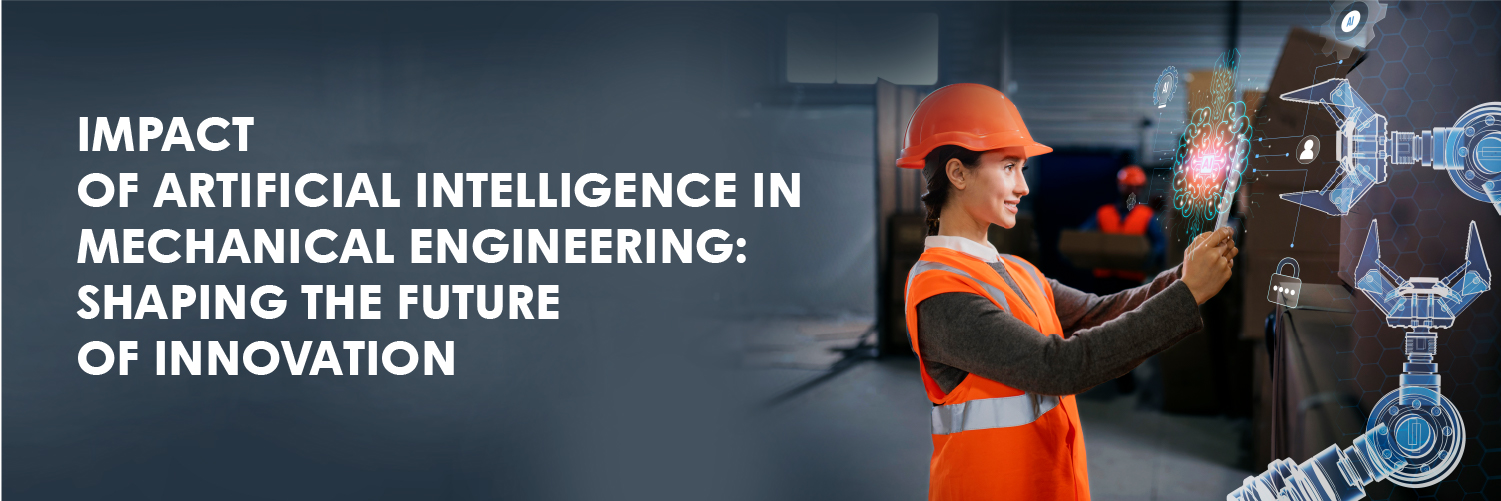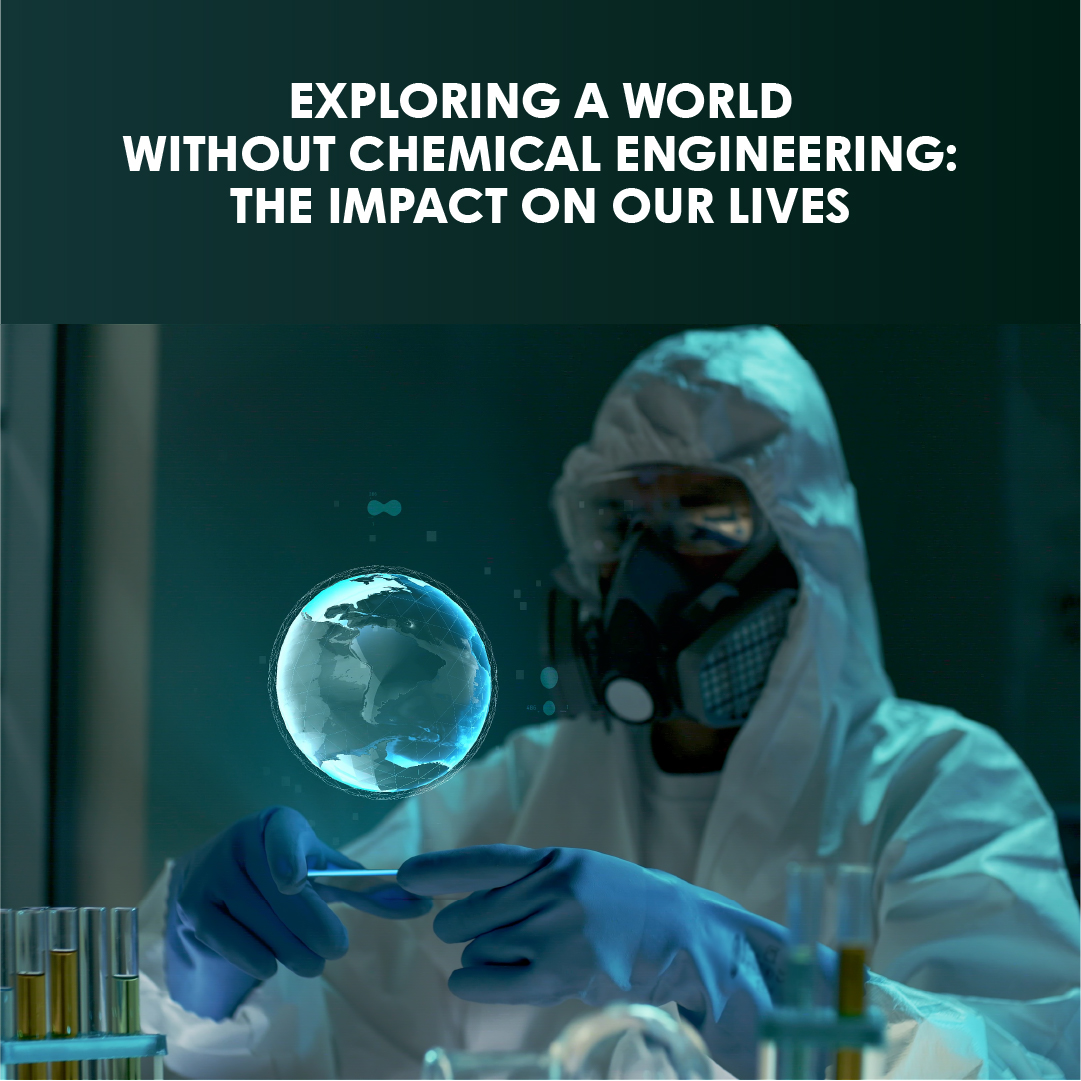Impact of Artificial Intelligence in Mechanical Engineering: Shaping the Future of Innovation

Artificial Intelligence (AI) has emerged as a transformative force in various industries, and its influence in mechanical engineering is nothing short of revolutionary. As the marriage of AI and engineering principles continues to evolve, the impact is felt across the entire spectrum of mechanical engineering, from design and manufacturing to maintenance and optimization. This article explores the profound influence of AI in mechanical engineering, emphasizing key areas such as AI in engineering design, machine learning applications, automation, and the advent of smart manufacturing.
1. AI in Engineering Design:
AI has redefined the landscape of engineering design by introducing innovative approaches that enhance efficiency and creativity. AI algorithms analyze vast datasets, facilitating rapid prototyping, optimizing designs, and predicting potential issues. This accelerates the design process, allowing engineers to explore a multitude of design variations and refine concepts with unprecedented speed.
2. Machine Learning Applications:
Machine learning, a subset of AI, finds extensive applications in mechanical engineering. Predictive maintenance is one notable area where machine learning algorithms analyze equipment data to predict potential failures, enabling proactive maintenance strategies. Additionally, machine learning enhances optimization processes, refining parameters for better performance in diverse mechanical systems.
3. Automation in Manufacturing:
AI-driven automation is transforming traditional manufacturing processes. Robots and autonomous systems equipped with AI capabilities are seamlessly integrated into production lines, handling intricate tasks with precision. This not only accelerates manufacturing but also ensures consistency and quality in the production of complex mechanical components.
4. Enhanced Precision and Efficiency:
AI augments precision in mechanical engineering tasks, especially in areas like quality control and inspection. Computer vision powered by AI enables real-time analysis of manufacturing processes, identifying defects and deviations with high accuracy. This contributes to enhanced product quality and operational efficiency.
5. Cognitive Robotics:
Cognitive robotics, an interdisciplinary field combining AI, robotics, and cognitive science, is making strides in mechanical engineering. These intelligent robotic systems can adapt to dynamic environments, learn from experiences, and execute complex tasks with dexterity. Applications range from assembly line operations to intricate tasks in hazardous environments.
6. Smart Manufacturing:
The integration of AI in manufacturing has given rise to the concept of smart manufacturing or Industry 4.0. AI-driven systems connect machines, devices, and sensors, creating a network where real-time data exchange and decision-making optimize the entire production chain. This interconnected approach leads to increased productivity, reduced downtime, and resource efficiency.
7. Data-Driven Decision-Making:
AI empowers mechanical engineers with data-driven insights for decision-making. From simulations and analysis to performance monitoring, AI algorithms process vast datasets, enabling engineers to make informed decisions that enhance the overall efficiency and reliability of mechanical systems.
8. Energy Efficiency and Sustainability:
AI contributes to energy efficiency in mechanical engineering applications. Algorithms optimize energy consumption by adapting processes based on real-time demand and environmental conditions. This not only reduces operational costs but aligns with sustainability goals by minimizing resource usage.
9. Human-Machine Collaboration:
The integration of AI fosters a new era of human-machine collaboration. Mechanical engineers work alongside AI systems, leveraging their computational power for complex calculations, simulations, and analyses. This collaborative synergy amplifies the capabilities of mechanical engineering professionals.
10. Continuous Learning and Adaptability:
One of the key strengths of AI in mechanical engineering lies in its ability to continuously learn and adapt. As systems interact with data over time, they refine their algorithms and models, leading to continuous improvement in performance, efficiency, and problem-solving capabilities.
Conclusion:
The impact of AI in mechanical engineering is a journey toward unparalleled innovation and efficiency. From revolutionizing design processes to redefining manufacturing through smart automation, AI has become an integral part of the mechanical engineering landscape. As the field continues to evolve, the collaborative synergy between human expertise and AI capabilities promises a future where mechanical engineering reaches new heights of precision, sustainability, and technological advancement. The transformative influence of AI is not merely a trend; it is a paradigm shift that propels mechanical engineering into an era of unprecedented possibilities and continuous evolution.
OUR RECENT BLOG



